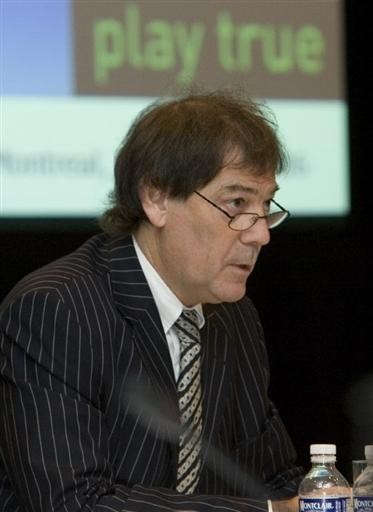World anti-doping code revised
By Laura Weislo Coming up on Cyclingnews will cover the 96th Scheldeprijs Vlaanderen - 1.HC live on...

By Laura Weislo
Cycling has the distinction of being in the centre of some of the most prominent doping scandals in recent years, but some good may come out of the sport's darkest moments. The cases might help pave the way for improvements to the World Anti-doping Association's (WADA) code. A revision of the code was released this week.
WADA's code is currently undergoing the first major revision since its inception in 2003, and is the subject of an iterative process which will see the first draft, which was released this week, undergoing review until May, followed by the release of a second draft. Following the second draft, there will be another review period, leading up to the WADA annual meeting in November, where they hope to finalise the new version of the code.
WADA director general David Howman explained to Cyclingnews that the WADA code was "always intended to be a living document, and not set in stone." The latest revision was the result of more than six months of comments solicited from a list of thousands of 'stakeholders' - governments, sporting organizations, anti-doping authorities and athletes alike. The call for comments on the code was highly successful, and according to Howman, they received "probably more feedback" on this than they have on any other document.
Howman said that the revisions are more like "tweaks" in order to ensure that "best practices" are spelled out. He denied that the changes were influenced by any doping scandals, but did state that the biggest changes relate to sanctions: they received many comments calling for the flexibility to impose bigger sanctions for more serious doping offenses and lighter sentences for less egregious ones.
In the draft, recommended sanctions get doubled for athletes whose doping violations are "part of a larger doping scheme". The document also includes clear language allowing athletes to be sanctioned in the absence of a positive test, "based on the Athlete’s admissions, the credible testimony of third persons, [or] reliable documentary evidence". Howman admitted that clarification for 'non-analytical' positives, or sanctions based on actions other than positive laboratory tests, stem partly from the infamous BALCO cases.
To read the complete news feature, click here.
Get The Leadout Newsletter
The latest race content, interviews, features, reviews and expert buying guides, direct to your inbox!

Laura Weislo has been with Cyclingnews since 2006 after making a switch from a career in science. As Managing Editor, she coordinates coverage for North American events and global news. As former elite-level road racer who dabbled in cyclo-cross and track, Laura has a passion for all three disciplines. When not working she likes to go camping and explore lesser traveled roads, paths and gravel tracks. Laura specialises in covering doping, anti-doping, UCI governance and performing data analysis.